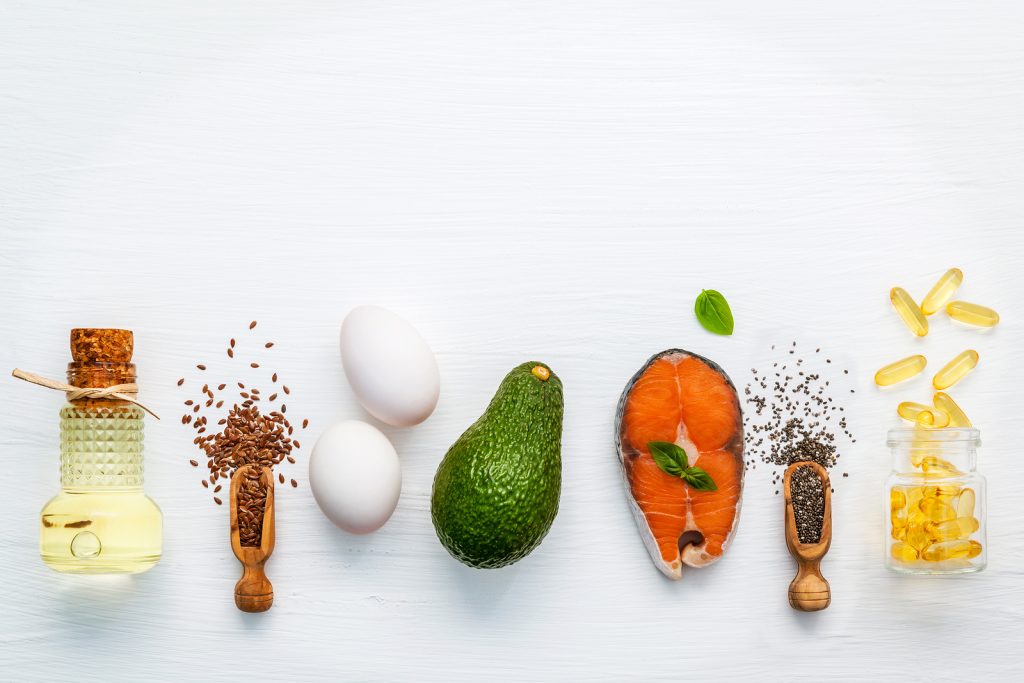Full, Low, or Free — Which Fat is Right for Me?
Many people assume fat-free must mean the healthiest choice, but new research suggests it may not be that simple. While the word, “fat”, has been deemed the enemy of many diets, this macronutrient is not the adversary we once thought. Fat offers many benefits, including improved vitamin absorption, protection for the body’s organs, along with satiating, dense energy. Because of this dense source of energy, or calories, fat should be consumed moderately and in a healthful way, but it is still essential to a healthy diet.

Choosing healthy fats to incorporate into a daily diet is key. Essential fatty acids, including omega-3s, like alpha-linolenic acids (ALAs) found in fatty fish, chia seeds, flax seeds, and walnuts, provide anti-inflammatory protection and are crucial for brain development. Additionally, unsaturated fats, found in olive oil, nuts, seeds, and avocado, aid in cell development and help decrease LDL, or “bad” cholesterol.
However, not all fat is created equal. Trans fat should be very limited or avoided, as these types of fats may increase risk of cardiovascular disease. Look for hydrogenated oils in ingredient lists to spot trans-fat sources. Saturated fats, found in many animal products, should also be limited, but new research surrounding dairy consumption suggests full or low fat dairy has little to no impact on cardiovascular health. This departure from previous beliefs about dairy supports additional studies noting fat in dairy products may also slow the absorption of sugar, helping lower the risk of diabetes.
Additionally, many fat-free products contain added sugars, including flavored yogurt or milk. While fat provides essential nutrition, swapping it for sugar does not provide any added value. Instead, look for plain varieties with some fat to reap the benefits and cut back on added sugar consumption.
Overall, while fat should not be shunned from a healthful diet, it is important to keep moderation in mind. The extra calories from fat add up quickly, so sticking to appropriate portions of full or low fat dairy products is important. Choose half-cup servings of full-fat yogurt or 1 ounce of cheese per meal.
Bottom line — Look for sources of naturally occurring fat and healthfully incorporate these foods into your daily diet. Keeping moderation in mind, choose plant-based sources of fat, like olives, nuts, or avocados, along with fish and portion-controlled amounts of full or low fat dairy products.